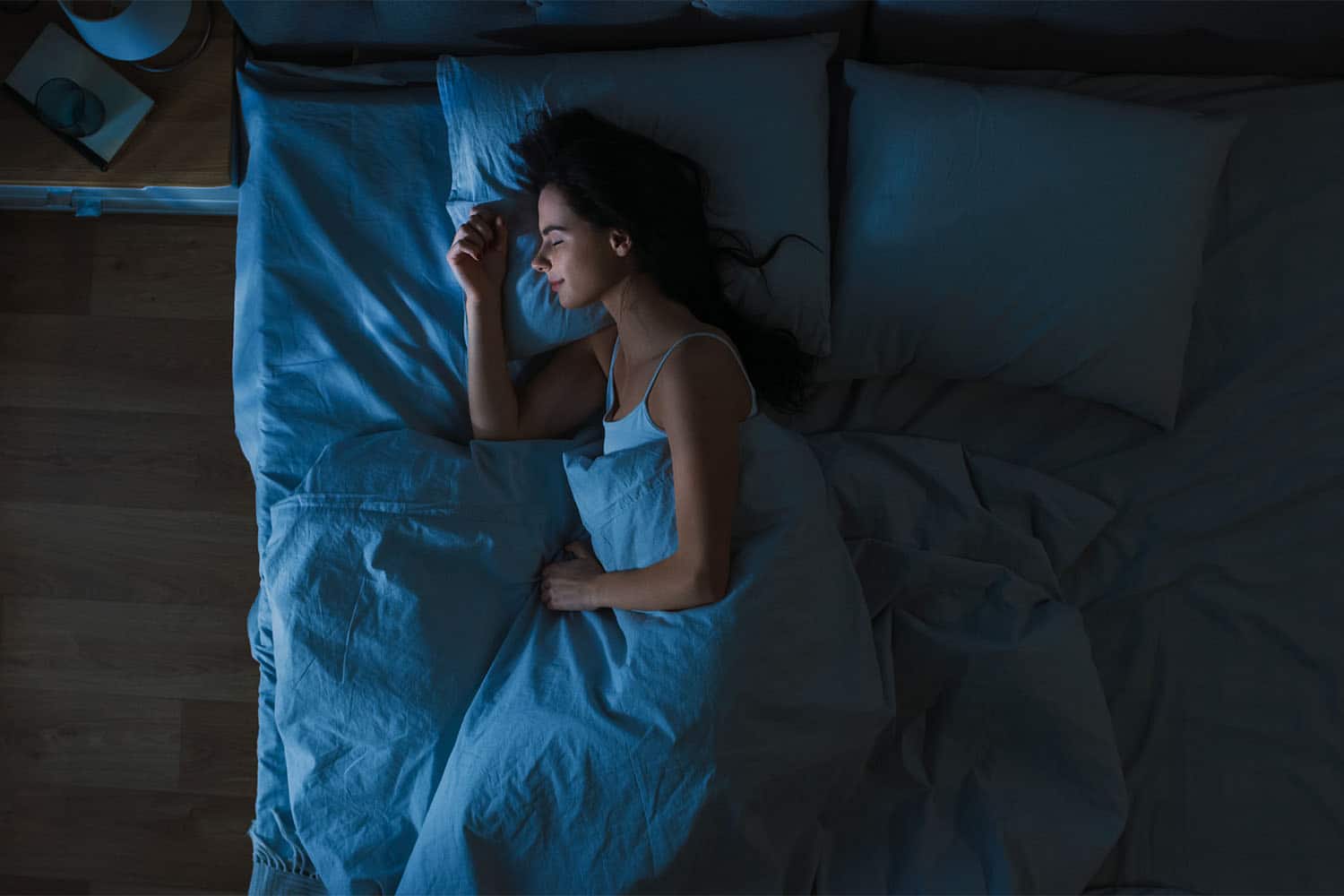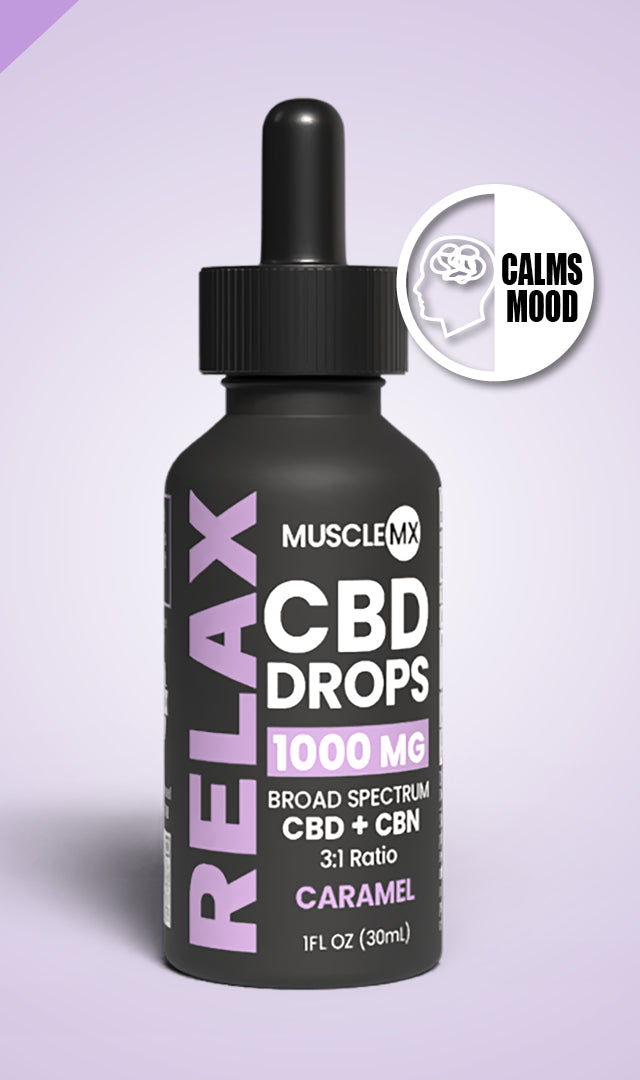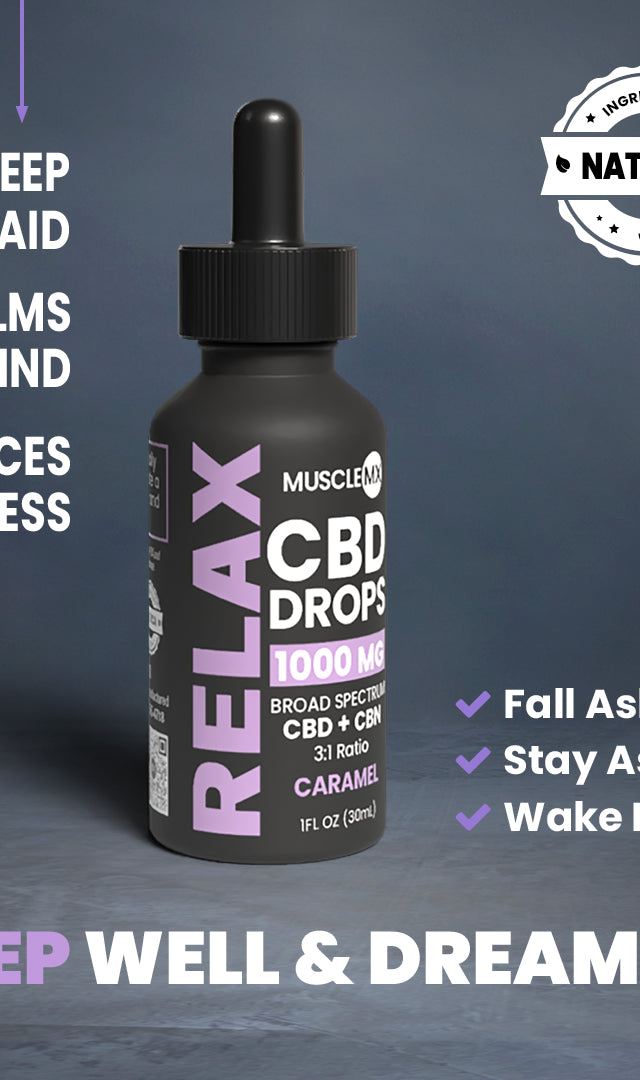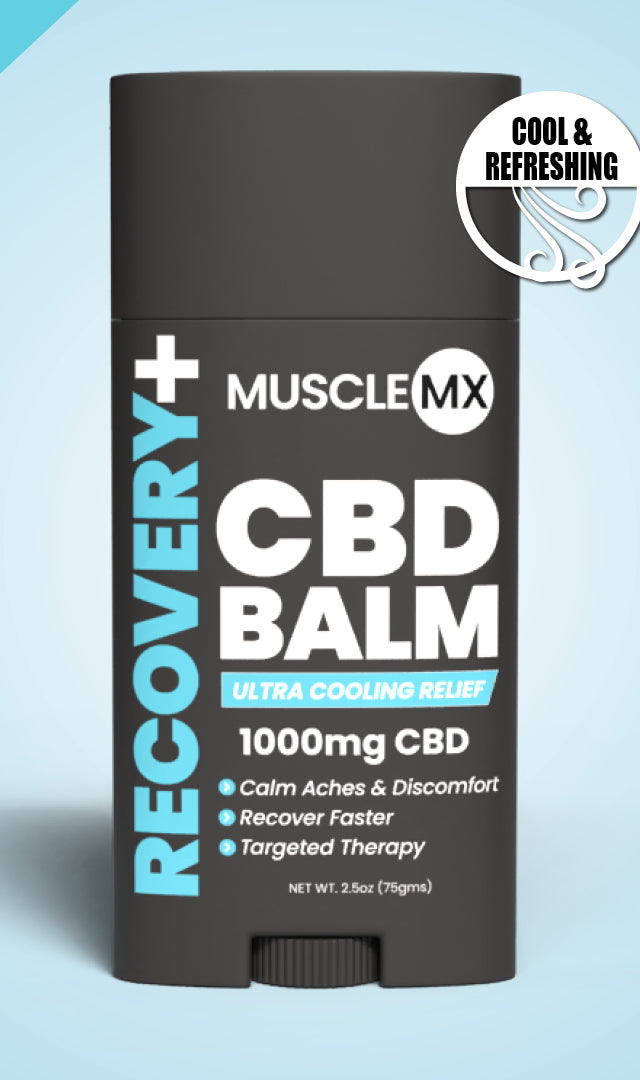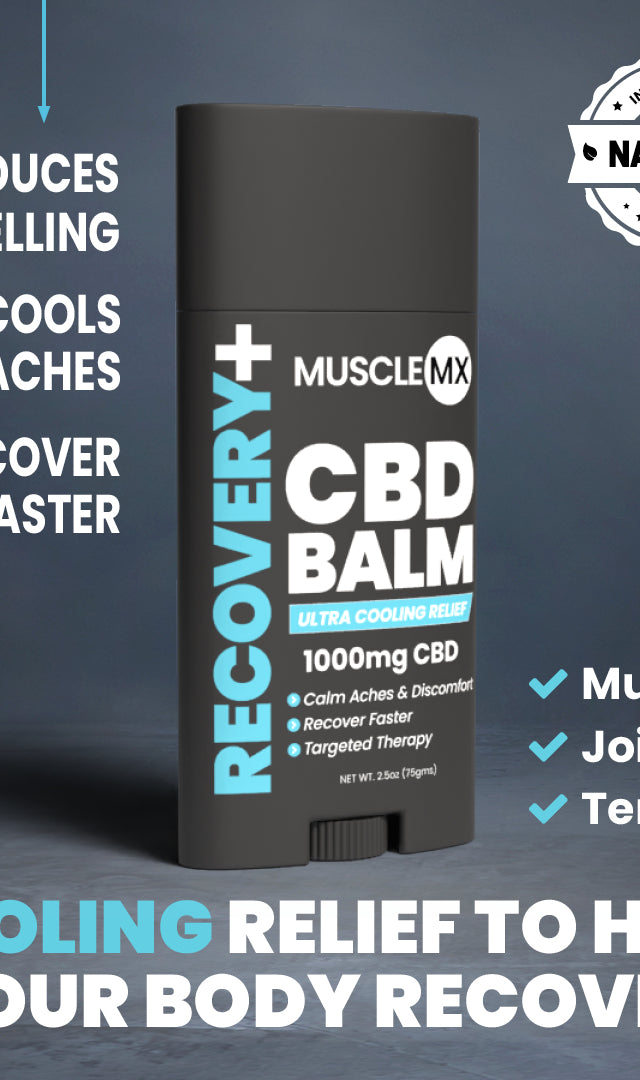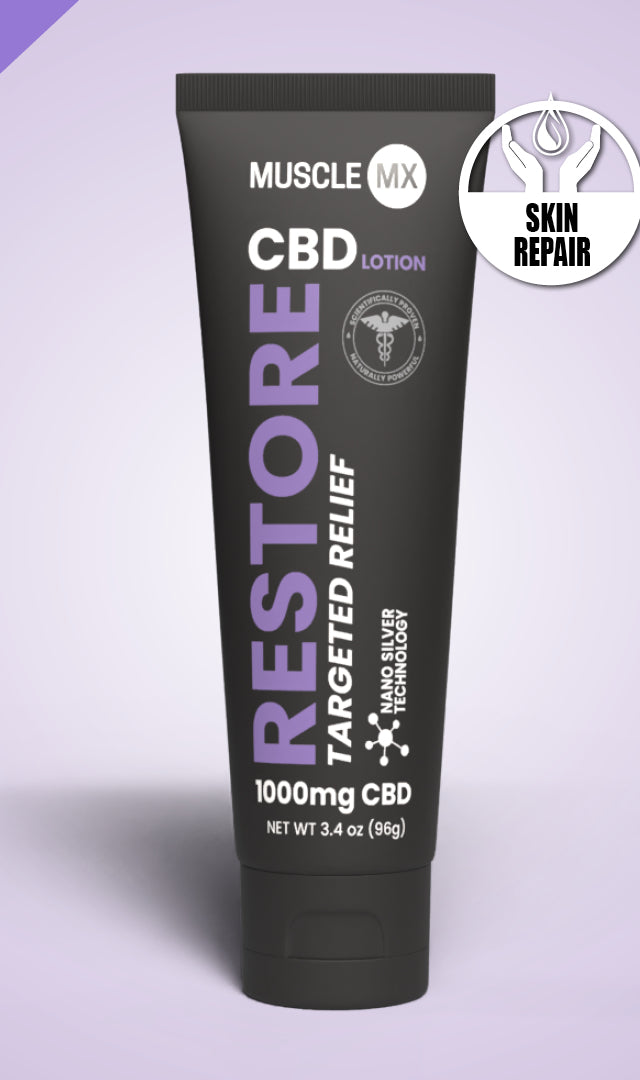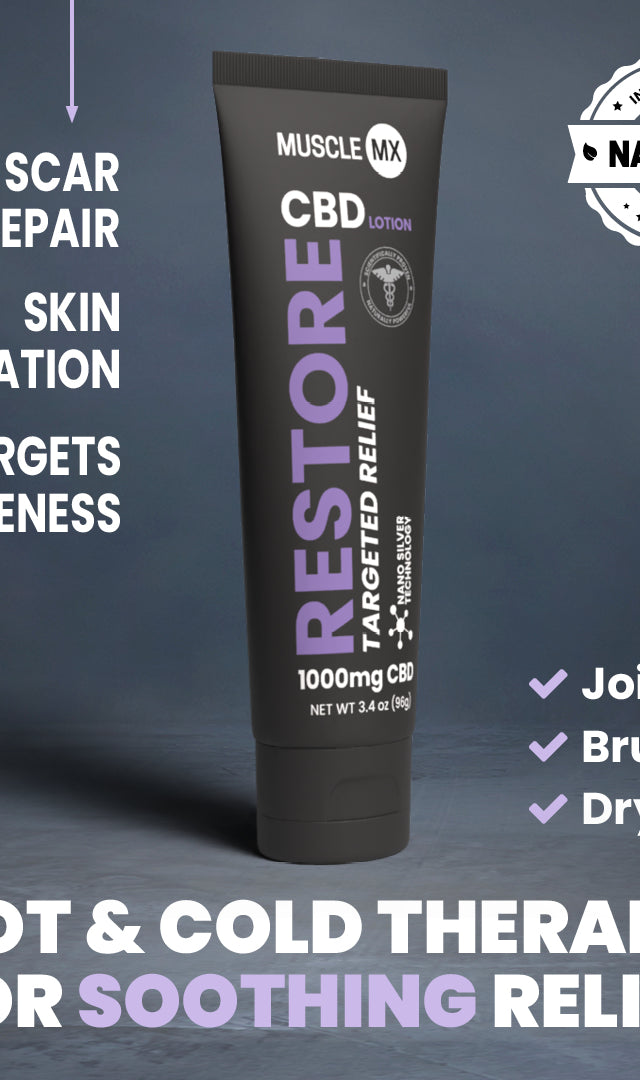CBD Gummies vs Melatonin: Which Actually Works for Sleep?
Key Takeaways
Understanding the differences between CBD and melatonin can help you choose the right sleep aid for your specific needs and sleep challenges.
-
Melatonin works best for timing issues - Effective for jet lag, shift work, and falling asleep faster (reduces sleep onset by ~10.7 minutes)
-
CBD targets underlying causes - Better for anxiety, stress, and pain-related insomnia by calming the nervous system rather than regulating sleep cycles
-
Start with proper dosages - Begin with 0.5-5mg melatonin or 5-25mg CBD; higher doses don't necessarily provide better results
-
Quality matters significantly - 88% of melatonin products are inaccurately labeled; always look for third-party testing and certificates of analysis
-
Combination therapy shows promise - Taking both together may create synergistic effects, but consult healthcare providers if taking other medications
The key is matching your sleep aid to your specific problem: choose melatonin for sleep timing issues and CBD for stress-related sleep disruptions.
Introduction
Sleep troubles — they're something that can turn your nights into a frustrating battle with your pillow. If you're wondering whether CBD gummies or melatonin might finally give you the rest you need, you're definitely not alone. Millions of people worldwide struggle with sleep issues, and more of us are looking for natural alternatives to prescription sleep medications.
Whether stress keeps your mind racing at bedtime or you simply can't fall asleep when you want to, finding the right sleep support can make all the difference in how you feel the next day.
Here's what's interesting: CBD and melatonin work in completely different ways in your body. Melatonin is a natural hormone that your body already produces to regulate your sleep cycle. It's particularly effective at helping you fall asleep faster, and research shows it can reduce the time it takes to drift off while improving your overall sleep quality.
CBD takes a different approach entirely. It works with your body's endocannabinoid system, helping to maintain balance and affecting sleep, mood, and how your body handles discomfort. A 2019 study in the Permanente Journal found that 66.7% of people with sleep concerns reported better sleep after taking 25mg of CBD daily for one month.
So which one works better? The answer depends on what's actually keeping you awake. Melatonin has years of scientific research backing its effectiveness, while CBD shows promising potential, particularly for its ability to address discomfort and stress, according to a 2017 literature review.
Let's explore how these two popular sleep aids work, their benefits, potential side effects, and most importantly, how to choose the right one for your specific sleep challenges.
How Melatonin and CBD Work Differently for Sleep
Understanding why these two sleep aids work so differently starts with knowing how they interact with your body's systems. Each one targets sleep through completely separate pathways.
Melatonin: Your Body's Natural Sleep Signal
Think of melatonin as your body's internal clock. This hormone, produced by a small gland in your brain called the pineal gland, works directly with your circadian rhythm to signal when it's time to sleep. For most people, melatonin production begins rising in the evening as darkness falls, peaks approximately seven hours after sunset, and drops to undetectable levels when you wake up.
Your pineal gland acts like a translator, converting light information from your environment into biological signals. When it gets dark, melatonin production increases. When light hits your eyes, it decreases. Here's something important to remember: melatonin doesn't instantly knock you out. Production typically starts a couple of hours before you actually fall asleep, gradually preparing your body for rest.
What makes melatonin particularly effective is its role as a "master synchronizer." It coordinates various bodily systems, including your body temperature and sleep-wake cycles. The key difference? Melatonin's effectiveness comes from its role in sleep timing, not from acting like a sedative.
CBD: A Different Approach to Rest
CBD takes an entirely different route to support sleep. Unlike melatonin, CBD isn't tied to your sleep-wake cycle at all. Instead, it works by calming your nervous system and influencing how your body responds to stress. CBD interacts with the endocannabinoid system, which helps regulate mood, sensation, appetite, and sleep.
The sleep benefits of CBD often come through its ability to reduce anxiety. When CBD helps quiet those racing thoughts that keep you awake, sleep becomes more accessible. People dealing with ongoing discomfort also report better sleep when using CBD, though researchers are still determining whether this comes from pain relief or direct sleep effects.
Research shows CBD may help you fall asleep faster and improve your total sleep time. A 2024 study found something particularly interesting: 15 mg of CBD was equally effective for improving sleep quality as 5 mg of melatonin.
Two Systems, Two Approaches
These biological systems represent fundamentally different approaches to sleep support. Your circadian rhythm operates like a 24-hour internal clock, with melatonin serving as its primary messenger. The endocannabinoid system, on the other hand, focuses on maintaining balance across numerous body functions.
What's fascinating is how these systems actually connect. The pineal gland, which produces melatonin, also contains all the components of the endocannabinoid system. Even your body's own endocannabinoids follow circadian patterns — levels of anandamide (AEA) are highest when you wake up and lowest before sleep.
Both systems support sleep, but through different mechanisms. Melatonin signals sleep timing by reducing wake-promoting signals from your circadian clock. The endocannabinoid system promotes sleep by activating the serotonergic system and influencing neurotransmitter release.
What's the Best Choice for Your Sleep Issues?
The choice between CBD gummies and melatonin really comes down to what's actually causing your sleep problems. Understanding these differences can help you pick the right option for your specific situation.
When Melatonin Makes the Most Sense
Melatonin works best when your sleep issue is about timing. If you're dealing with jet lag from crossing time zones, melatonin can be incredibly effective. For adults with simple insomnia, research shows it helps you fall asleep about 10.7 minutes faster. Children tend to see even better results, falling asleep approximately 17 minutes quicker.
People with delayed sleep phase syndrome — those who naturally want to stay up late and sleep in — see particularly impressive results, with melatonin reducing sleep onset time by nearly 39 minutes. Remember, you don't need massive doses. Between 0.5-1mg is often enough, and higher doses above 5mg aren't recommended.
When CBD Might Be Your Better Option
CBD shines when stress, anxiety, or discomfort are the real culprits behind your sleepless nights. The research backs this up: in one significant study, anxiety scores decreased in 79.2% of patients using CBD, with 66.7% reporting improved sleep.
If your mind races with worries when you hit the pillow, or if physical discomfort keeps you tossing and turning, CBD might address these root causes more effectively than melatonin. A 2019 study showed CBD's potential for reducing the time it takes to fall asleep while supporting more uninterrupted rest.
What About Side Effects?
Both options are generally well-tolerated, but they can cause different issues. Melatonin's main complaint is morning grogginess, especially if you're sensitive to it. You might also experience headaches, dizziness, or feeling drowsy during the day.
CBD tends to cause different side effects: dry mouth, nausea, diarrhea, or occasional lightheadedness. The good news is that both supplements typically have mild side effect profiles.
The Research Story
Here's where these two options really differ. Melatonin is the most studied non-prescription sleep supplement out there, with extensive research supporting its use. CBD shows promising potential, but the clinical evidence is still building. A recent pilot trial using 150mg CBD over two weeks found it didn't consistently improve sleep but did help preserve overall well-being.
This means if you want the supplement with the most proven track record, melatonin has the edge. But if your sleep issues stem from stress or discomfort, CBD's emerging research suggests it might be worth trying.
Can You Take CBD and Melatonin Together?
Have you been wondering if taking both CBD and melatonin might give you even better sleep results? It's a question many people ask, and the research suggests that combining these two sleep aids can indeed be effective for some individuals.
How They Work Together
The interesting thing about CBD and melatonin is that they tackle sleep issues from completely different angles, which can actually work in your favor. Melatonin focuses on signaling sleep timing and helping reset your body's internal clock, while CBD addresses the underlying issues that might be keeping you awake in the first place.
A small study found that participants who took a sublingual blend of CBD and melatonin nightly for three months experienced improved relaxation and potential influences on pain perception and circadian rhythm. What makes this combination particularly effective is that CBD may slow both the absorption and metabolic clearance of melatonin, creating a smoother, more prolonged melatonin profile in your bloodstream.
Starting Doses for the Combination
When it comes to combining these supplements, starting low is always the smart approach. For melatonin, you'll want to stick with 0.5-5mg, as higher doses don't offer additional benefits. With CBD, a typical range for adults is 15-30mg daily.
One study that examined the combination used 1.5mg of melatonin with 2.5mg of CBD. Remember to take combined products 30-60 minutes before bedtime for the best results.
Who Should Be Cautious
While this combination can be helpful for many people, it's not right for everyone. If you're taking medications that come with "grapefruit warnings," you'll need to be careful, as CBD can affect how your liver processes certain drugs.
Those taking anticoagulants, antidepressants, benzodiazepines, or blood pressure medications should definitely consult with their healthcare providers before trying this combination. Pregnant or breastfeeding women, people with liver disease, and heavy alcohol consumers should also avoid this combination without medical guidance.
Understanding these considerations is important for making a safe and informed decision about your sleep support routine.
What to Look for When Choosing Your Sleep Aid
Choosing the right sleep aid can feel overwhelming when you're faced with countless options on store shelves. The key is knowing what you're actually getting in each product and understanding the important factors that can make or break your sleep support routine.
CBD Gummies vs Melatonin Gummies: What's Actually Inside?
When you pick up a bottle of melatonin gummies, you'll typically see labels claiming 1-10mg of melatonin per serving. Here's what's concerning: laboratory testing reveals that 88% of melatonin products tested were inaccurately labeled, with actual melatonin content ranging from 74% to 347% of what the label claimed.
CBD sleep gummies can be even more complex. Some contain both CBD (usually 5-10mg per piece) and melatonin, with CBD content ranging from 10.6mg to 31.3mg per serving. Some products labeled as melatonin actually contained CBD instead. This inconsistency makes it essential to buy from reputable brands that provide transparent testing results.
Starting Doses: Finding Your Sweet Spot
For melatonin, less is often more. Starting with 1-4mg is typically effective, since even small amounts (0.1-0.3mg) can increase your plasma melatonin to normal nighttime levels. Many people make the mistake of taking too much, thinking more will work better.
With CBD, a sensible approach is to begin with 5-10mg for relaxation or 20-25mg if stress is your main sleep disruptor. Remember that clinical study we mentioned earlier? 25mg of CBD daily helped 66.7% of participants achieve better sleep within one month.
Quality Matters: What to Look For
Given the lack of consistent regulation, third-party testing becomes your safety net. Here's what you should always verify:
• Certificates of Analysis (CoAs) showing exact CBD and THC content • Products labeled "THC-free" or containing less than 0.3% THC
• Verification that the product has been screened for contaminants like pesticides, heavy metals, and solvents
Understanding the Legal Landscape
Hemp-derived CBD products containing less than 0.3% THC remain federally legal, but state laws can vary significantly. The FDA hasn't approved nonprescription CBD products, which means some products may be inaccurately labeled. As for melatonin, despite its widespread availability, the FDA provides minimal oversight compared to prescription medications.
Understanding these factors can help you make a more informed decision about which sleep aid might work best for your specific situation.
What's the Quick Comparison?
Sometimes it helps to see everything side by side. Here's how CBD and melatonin stack up against each other when it comes to supporting your sleep:
|
Aspect
|
CBD
|
Melatonin
|
|
Mechanism of Action
|
Interacts with endocannabinoid system; calms nervous system and affects stress response
|
Natural hormone that directly regulates sleep-wake cycle through circadian rhythm
|
|
Primary Benefits
|
- Reduces anxiety and stress
- May help with pain-related sleep issues
- Improves overall sleep quality
|
- Reduces time to fall asleep
- Regulates sleep timing
- Coordinates bodily systems
|
|
Recommended Starting Dosage
|
5-25mg daily
|
0.5-5mg
|
|
Common Side Effects
|
- Dry mouth
- Nausea
- Diarrhea
- Lightheadedness
|
- Morning grogginess
- Headaches
- Dizziness
- Daytime drowsiness
|
|
Scientific Evidence
|
Limited but promising; emerging research
|
Most studied non-prescription sleep supplement with extensive research
|
|
Best Use Cases
|
- Anxiety-related sleep issues
- Stress-induced insomnia
- Pain-related sleep disruptions
|
- Jet lag
- Shift work
- Sleep onset issues
- Delayed sleep phase syndrome
|
|
Effectiveness Rate
|
66.7% reported better sleep (25mg daily for one month)
|
Reduces sleep onset by ~10.7 minutes in adults
|
Remember, the "better" choice really depends on what's keeping you awake at night. If your sleep issues stem from stress, anxiety, or discomfort, CBD might be worth exploring. If you're struggling with sleep timing — like falling asleep too late or adjusting to a new schedule — melatonin could be your answer.
Final Thoughts
Sleep challenges affect each of us differently, and the choice between CBD gummies and melatonin really comes down to understanding what's behind your restless nights.
If your sleep troubles stem from timing issues — jet lag, shift work, or simply not being able to fall asleep when you want to — melatonin's track record speaks for itself. This natural hormone works directly with your body's internal clock and has decades of research supporting its effectiveness.
But if stress, anxiety, or discomfort are the culprits keeping you awake, CBD might be the better fit. It addresses these underlying causes by working with your body's endocannabinoid system to promote calm and balance.
Some people find that combining both supplements gives them the best of both worlds — melatonin to signal sleep timing and CBD to quiet the mind and ease tension. Just remember, if you're taking any medications, especially those with grapefruit warnings, it's important to check with your healthcare provider first.
Here's something that matters regardless of which option you choose: product quality. With inconsistent regulation in the supplement industry, look for third-party testing and clear labeling. Start with lower doses — 0.5-5mg for melatonin or 5-25mg for CBD — and see how your body responds.
Understanding how these sleep aids work puts you in control of your sleep health. Whether you go with melatonin's proven effectiveness for sleep timing or CBD's calming approach to stress and discomfort, you now have the knowledge to make an informed choice.
If you're still unsure which direction to take, consider talking with a healthcare professional who can help you identify the root cause of your sleep issues and guide you toward the most appropriate solution for your specific situation.
Your wellness journey is uniquely yours, and finding the right sleep support is an important step toward better rest and better health.
FAQ's About CBD Gummies vs Melatonin
Q: Is melatonin still recommended for sleep issues?
A: While melatonin remains effective for certain sleep problems, recent studies suggest caution with long-term use. It's best to consult a healthcare provider for personalized advice on using melatonin, especially if you have any underlying health conditions.
Q: Can I take CBD gummies for sleep every night?
A: Yes, it's generally safe to take CBD gummies nightly if they work well for you. However, it's important to use a reputable brand and monitor how you feel. If you have any concerns, consult with a healthcare professional.
Q: What are the most effective gummies for sleep?
A: The effectiveness of sleep gummies can vary depending on individual needs. Some people find melatonin gummies helpful for timing-related sleep issues, while others prefer CBD gummies for stress-related sleep problems. It's best to choose based on your specific sleep challenges.
Q: Do medical professionals recommend CBD for sleep?
A: While research on CBD's effects on sleep is still emerging, some studies suggest potential benefits. Many healthcare providers are open to CBD as a sleep aid, but it's important to discuss its use with your doctor, especially if you have other health conditions or take medications.
Q: How do CBD and melatonin differ in their effects on sleep?
A: Melatonin directly regulates the sleep-wake cycle and is effective for issues like jet lag or difficulty falling asleep. CBD, on the other hand, works by calming the nervous system and may be more beneficial for anxiety or pain-related sleep problems. The choice between the two depends on the underlying cause of your sleep issues.
References
https://qurist.in/blogs/news/melatonin-vs-cbd-which-is-better-for-good-sleep
https://www.healthline.com/health/sleep/melatonin-vs-cbd
https://www.sleepfoundation.org/melatonin
https://my.clevelandclinic.org/health/articles/23411-melatonin
https://www.sleepfoundation.org/sleep-aids/cbd-for-sleep
https://www.ncbi.nlm.nih.gov/search/research-news/19258
https://www.healthline.com/nutrition/cbd-oil-benefits
https://www.fundacion-canna.es/en/endocannabinoids-and-circadian-rhythm-implications-sleep
https://www.mdpi.com/1422-0067/25/7/3603






































